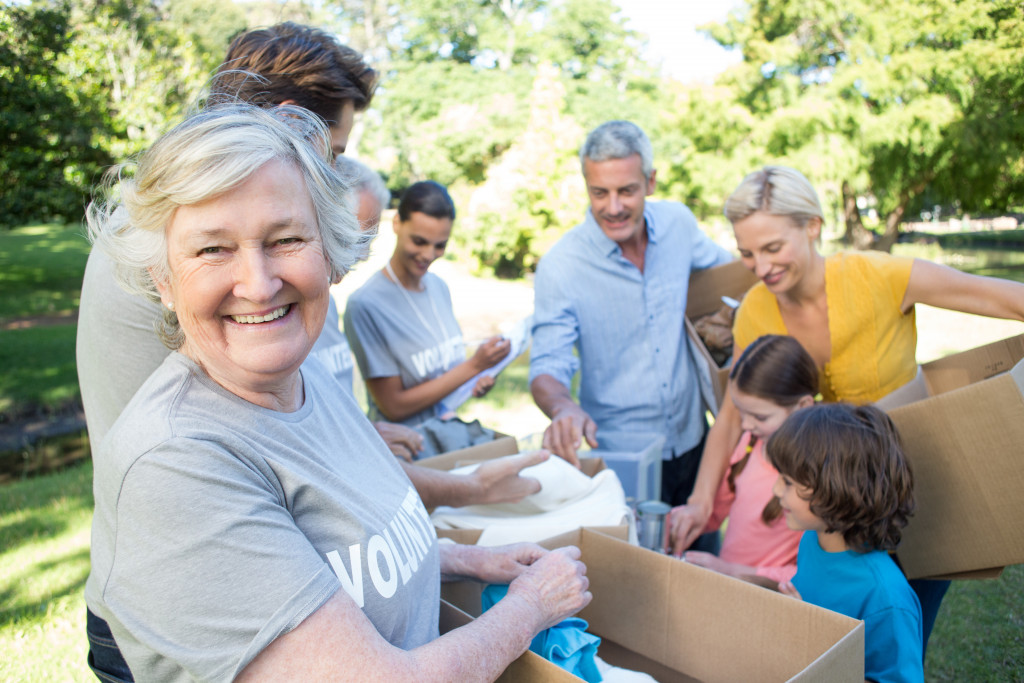Most of us love the idea of giving back to the community and helping other people. However, not everyone is into volunteer work, particularly an unpaid one. You might be asking, what’s great about volunteering besides the community service itself? Well, there are tons, and those perks are typically good for your health and overall well-being.
For one, serving the community can boost both your physical and mental health. It can eliminate social isolation and fight off depression, increase your self-esteem and creativity, and help you stay physically fit regardless of your age. Volunteering is an amazing way to boost your relationship and social skills as you get to meet new friends by committing to a shared activity.
In other words, it helps you to connect more to the beauty of the outside world. Do you think volunteering can help you lead a healthier and happier life? Here’s how you can be a great volunteer and make the best memories.
1. Determine your values
Before anything else, create a list of your values. It can be issues that you care about or motivations that inspire or drive you. These things will guide you to finding the proper organization to join. For example, if you aspire to help the less fortunate, you can look for those that serve people from historically disadvantaged groups, individuals with disabilities, and housing-insecure communities.
Or, you can target school groups if the social connection is your primary drive for engaging in volunteer work. Such organizations will give you opportunities to interact with board members of homeowners associations, neighborhoods, and parents.
2. Choose the right support services

In choosing the proper organization, it’s crucial to meticulously evaluate if they have the appropriate support services. Ideally, a reputable organization offers fair policies for volunteers and benefits to the community. If you’re doing volunteer work abroad, first understand the dynamics of serving the local community. Learn about the local culture and the community’s disadvantages.
If you’re pursuing a community service involving children, avoid disrespectful practices like taking excessive photos. Document the locals in a natural, respectful, and sensitive manner. A good volunteer knows that the job is about impacting lives in real communities and not about taking people’s experiences for display. A respectable organization will support just that — with the right mentorship and guidance.
3. Stay on your role limits
Never treat volunteering as a lightweight and all-fun task. Think of it as a passion work that requires both commitment and awareness. You should be careful in taking specific roles when volunteering, especially in a high-stakes environment. There are fields like healthcare that are not the right place to experiment or try out new skills.
You might cause more harm than good if you insist on doing things you’re not qualified to do, no matter how small you think they are. If you’re volunteering for an organization that provides medical services to the community, take a role that’s not outside your skillset.
Instead of trying to administer injections, you can volunteer to do the medical supply distribution. This task will only require you to deliver supplies using a medical storage cart. Healthcare carts usually contain sterile wraps, lines, and sanitary supplies that won’t need extensive professional experience for handling.
However, if you’re assigned to carts with medications, it’s best to request direct instructions from the medical professionals for proper distribution. If no clear instructions are given, don’t touch them. The last thing you want to happen is to cause more harm to the people you’re looking to help.
4. Study before you leave home
Regardless if you’re volunteering abroad or at your own local community, it’s a responsible act to have a deeper understanding of community services. The most dedicated volunteers take time-outs from their demanding jobs to prepare for and pursue volunteering. However, some get too excited about volunteering and hit the road without studying the community and necessary valuable contributions.
Spend time researching more about the community you’re helping and how your knowledge and skills can best be used. If you already have an organization you’re planning to work for, talk to the project managers and request guidance. Learning more about the programs even before engaging with them can make you a more prepared and smart volunteer in the future.
The impact of volunteering on your health is amazing. But on top of all that, you get to experience the happiness effect that this opportunity offers. It brings fulfillment, fun, and experience that you can also use to advance your professional career. Follow our tips in this guide and start doing volunteer work today with just positivity and passion in your pockets.

